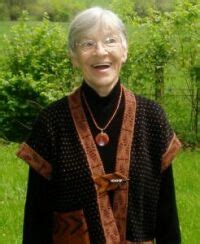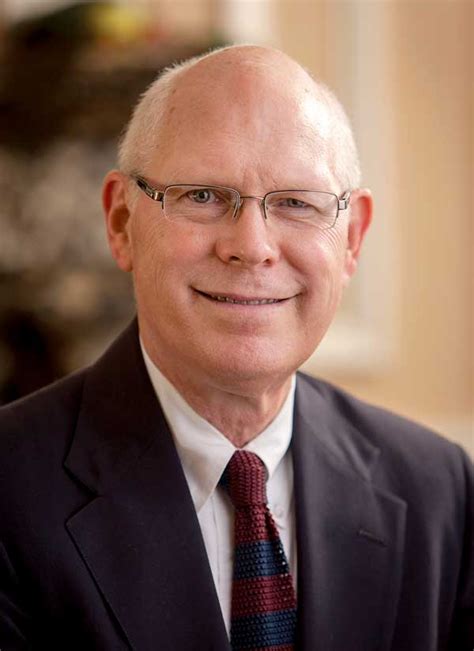A Quote by St. Catherine of Siena
To join two things together there must be nothing between them or there cannot be a perfect fusion. Now realize that this is how God wants our soul to be, without any selfish love of ourselves or of others in between, just as God loves us without anything in between.
Related Quotes
God wants to be our partner throughout life. Too often we are tempted to either carry the entire load ourselves or give everything to God and do nothing. God doesn't like either strategy. Sometimes He moves before us and sometimes after us - but He doesn't move without us. Without God... we cannot. Without us... God will not.
The decision must be made between Judaism and Christianity, between business and culture, between male and female, between the race and the individual, between unworhtiness and worth, between the earthly and the higher life, between negation and God-like. Mankind has the choice to make. There are only two poles, and there is no middle way.
We are commanded to love God with all our strength, heart, mind and soul and our neighbor in the same way God loves us - it is the same love flowing between God and the soul - the soul and its neighbor. It is difficult, but the burden of the cross is light compared to the cross of uncontrolled emotions, anger, insistence on one's own opinion, the frustration of trying to change others rather than being changed oneself, resentment, regrets and guilt. Accepting the present moment like Jesus did is certainly a lighter burden.
If nothing that can be seen can either be God or represent Him to us as He is, then to find God we must pass beyond everything that can be seen and enter into darkness. Since nothing that can be heard is God, to find Him we must enter into silence. Since God cannot be imagined, anything our imagination tells us about Him is ultimately a lie and therefore we cannot know Him as He really is unless we pass beyond everything that can be imagined and enter into an obscurity without images and without the likeness of any created thing.
It is one step, and a giant one, to see clearly and participate in the love that flows between the persons of the Trinity, but even here, God is seen as the object of his own love. It is yet another step to realize that God is beyond all subject and object and is Himself love without subject or object. This is the step beyond our highest experiences of love and union, a step in which self is not around to divide, separate, objectify or claim anything for itself. Self does not know God; it cannot love him, and from the beginning has never done so.
If we feel that any habit or pursuit, harmless in itself, is keeping us from God and sinking us deeper in the things of earth; if we find that things which others can do with impunity are for us the occasion of falling, then abstinence is our only course. Abstinence alone can recover for us the real value of what should have been for our help but which has been an occasion of falling. ... It is necessary that we should steadily resolve to give up anything that comes between ourselves and God.
We cannot find God without God. We cannot reach God without God. We cannot satisfy God without God - which is another way of saying that all our seeking will fall short unless God starts and finishes the search. The decisive part of our seeking is not our human ascent to God, but His descent to us. Without God's descent there is no human ascent. The secret of the quest lies not in our brilliance but in His grace.
Let the average man be put to the proof on the question of who is above, and his true position will be exposed. Let him be forced into making a choice between God and money, between God and men, between God and personal ambition, God and self, God and human love, and God will take second place every time.
The celebration of Lent, in the context of the Year of Faith, offers us a valuable opportunity to meditate on the relationship between faith and charity: between believing in God - the God of Jesus Christ - and love, which is the fruit of the Holy Spirit and which guides us on the path of devotion to God and others.










































